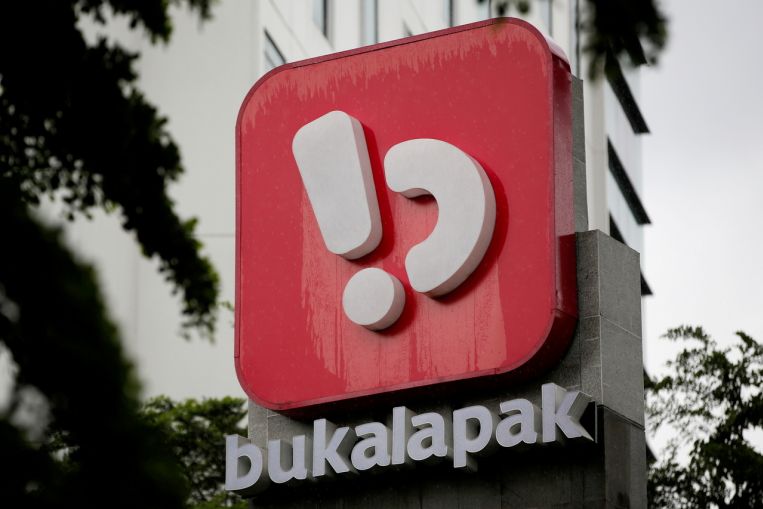JAKARTA (BLOOMBERG) – Online marketplace Bukalapak surged on its first day of trading after raising US$1.5 billion (S$2.03 billion) in Indonesia’s biggest-ever initial public offering (IPO).
The shares jumped 25 per cent from its initial offer price of 850 rupiah in Jakarta trading. The increase hit the upper limit that triggered the bourse’s automatic rejection, with the price staying at 1,060 rupiah as at 9.02am local time.
A successful debut by Bukalapak sets the tone for other regional tech giant IPOs. Indonesia’s GoTo, created through a merger of ride-hailing giant Aplikasi Karya Anak Bangsa, known as Gojek, and e-commerce company Tokopedia, is seeking to be valued at up to US$30 billion by offering shares before the end of the year. Traveloka Indonesia and Singapore’s Grab Holdings aim to go public via blank-cheque companies as soon as this year.
In Jakarta, three-fourths of the 44 companies that listed during the past 12 months ended their first session at least 25 per cent higher.
The IPO “will be an important milestone for Indonesia’s capital market to promote future unicorn listings domestically”, said JP Morgan Sekuritas Indonesia head of research Henry Wibowo.
Bukalapak’s gross merchandise value, the total amount of goods sold on its marketplace, can reach US$12 billion next year from an estimated US$9 billion this year, which makes its US$6 billion IPO valuation attractive compared with regional peers, he added.
Investors’ response to the IPO also reflects increased interest in e-commerce companies, which are thriving despite mobility restrictions put in place to curb the coronavirus pandemic. The company more than doubled its allocation for individual investors to meet retail demand and its offering was four times oversubscribed, Investor Daily newspaper reported on Tuesday.
Bukalapak, which in Bahasa Indonesia means opening a kiosk in the market, counts Singapore sovereign wealth fund GIC, Microsoft and Jack Ma’s Ant Group among its backers.
Friday’s debut gain pushes Bukalapak’s valuation to 109 trillion rupiah (S$10.25 billion), according to Bloomberg data, putting it on par with state toll rote Jasa Marga and telecom provider Axiata.













































